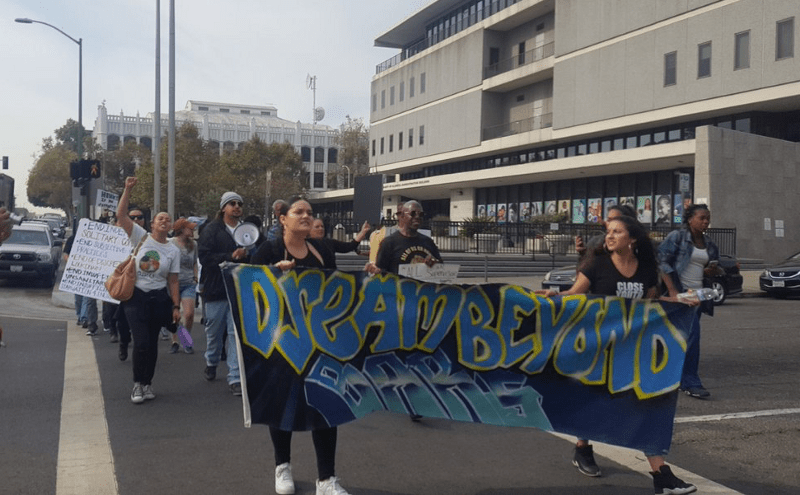California jail hunger strikers: “We’re seeking humanity”
Alameda and Santa Clara County jail detainees round out the first week of a hunger strike for better conditions.

Sheri Costa’s life in Alameda County, California has always been touched by incarceration. Her father was in and out of prison her whole life, her ex-husband wound up in prison, and her brothers in law have been locked up. “It’s been a personal experience for me,” 56-year-old Costa tells In Justice Today. “It’s just been the norm in our family, which is sad to say.”
In 2015, her nephew Mario Martinez died in Alameda County’s Santa Rita Jail two days before his 30th birthday. Martinez collapsed and died of acute asthmatic respiratory insufficiency while in jail fighting charges of attempted murder and possession of stolen property, according to SFGate. Costa and her family alleged that Martinez was neglected by medical providers in the prison, who worked for Corizon Healthcare, a private corrections healthcare provider that has faced lawsuits across the country for substandard care of people in custody.
These personal connections drive Costa’s support of currently incarcerated people in Alameda and Santa Clara Counties who started a hunger strike this week to protest the conditions of the local jails. The strike began Sunday in Oakland’s Glenn Dyer Detention Facility, and spread to Santa Rita Jail. Prisoners in Santa Clara County Main Jail and Elmwood Correctional Complex plan to begin striking in solidarity on Sunday, Oct. 22, organizing as part of Prisoners United of Silicon Valley, a prisoner-led group that is backed by outside community-based civil rights groups.
The strikers have five core demands: “End indefinite solitary confinement, “end subjective grievance practices, end abuse of discretion to lockdown, end insufficient and unsanitary clothing, and end insufficient food and starvation for indigent prisoners.” As of Thursday evening, Costa says the Alameda County Sherriff’s office had not contacted the community organizers who are supporting the prisoners to sit down and discuss the issues at hand.
“We would disagree that any of their demands are not being met,” Sergeant Ray Kelly, the Alameda County Sheriff’s public information officer tells In Justice Today. “They’re making it sound like our county jail [Glenn Dyer] is some kind of very oppressive environment, and I would disagree with that…there’s a lot of care that goes on in there.”
“Our number one priority is the health and safety of those that are hunger striking, while respecting their right to protest,” added Kelly. “At some point we’re going to have to have a talk or sit down with the protesters.”
On Tuesday, Costa and groups such as Communities United for Restorative Youth Justice (CURYJ) rallied at the Board of Supervisors building in downtown Oakland. Marlene Sanchez, associate director of CURYJ who attended the rally, says these demands and issues have “been brought up before to supervisors, and they have been taking it really lightly, saying ‘no that stuff isn’t happening’….People have died inside and we still have not seen much change.”
Sanchez has heard from prisoners involved in the strike that the jails are serving them leftover food multiple days in a row, that many packages sent from loved ones are never received, and that they are not being provided with clean clothes (or a regularly opportunity to wash their clothing). Others tell her that people held in solitary confinement are sometimes not allowed out of their cells for more than two hours each month.
Kelly stipulates that the jails do not use solitary confinement, but instead use administrative segregation — which he says does not involve the same level of “sensory deprivation.” Advocates like Sanchez argue that these two labels describe the same thing, and research illustrates that prolonged isolation can have damaging mental health effects.
Costa hopes that the hunger strike will attract greater outside support for the prisoners, and draw a deeper understanding of how the mistreatment of jail detainees also effects their families. When one person breaks a rule and an entire facility is locked down for an extended period of time, she notes, families also pay the price.
“Most of these people are not even convicted,” Costa notes. “You’re taking humanity away from people who are sitting there because they can’t afford bail. They still deserve to be treated like a human being…We can do better than this.”
